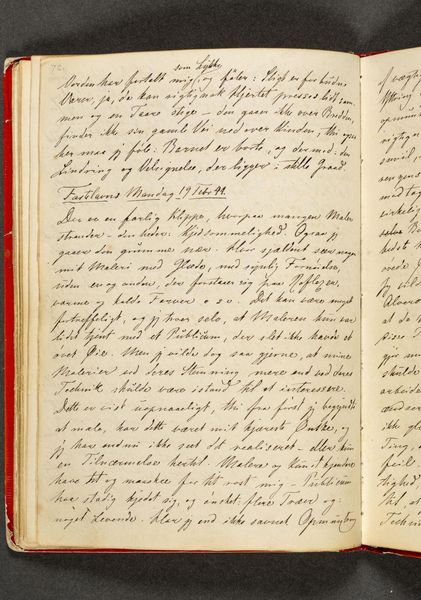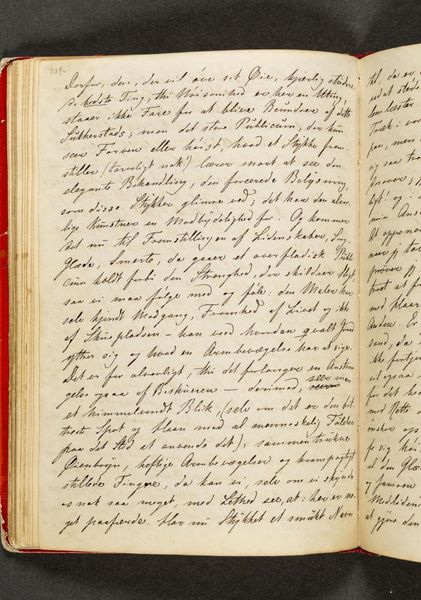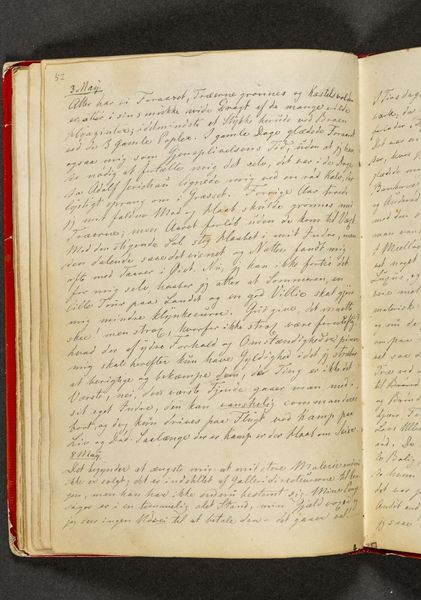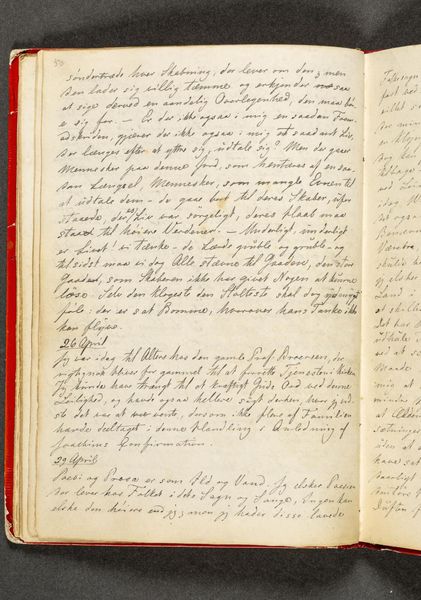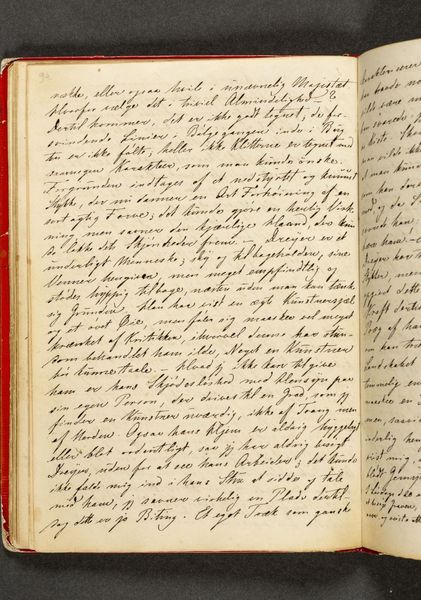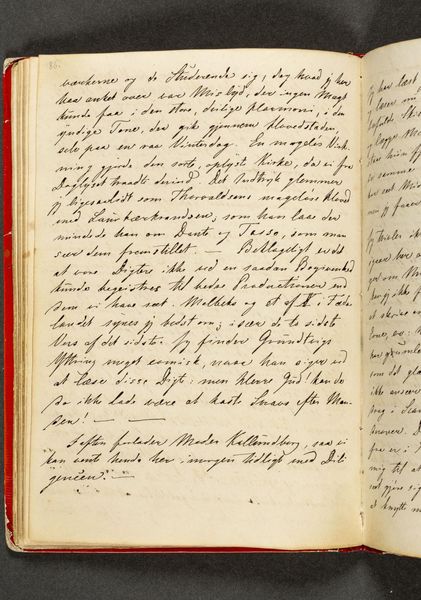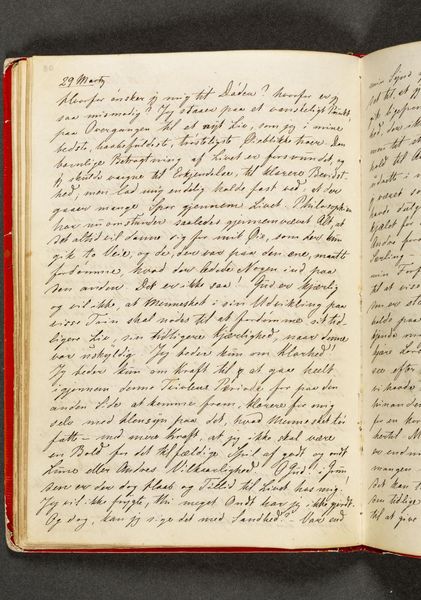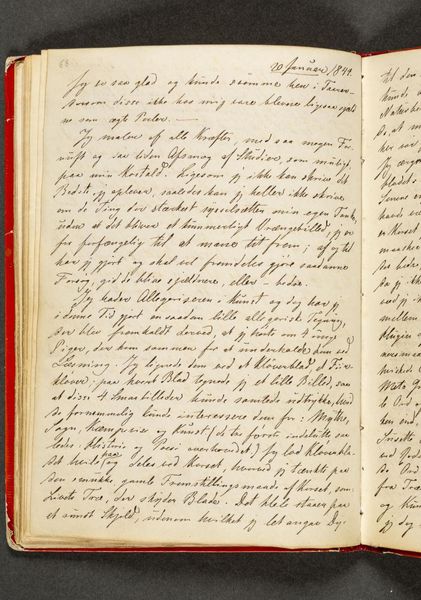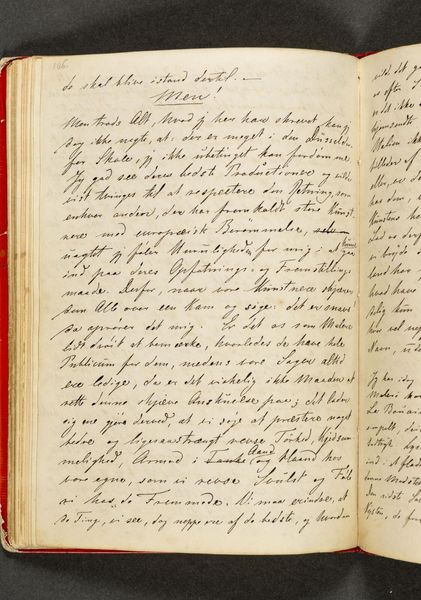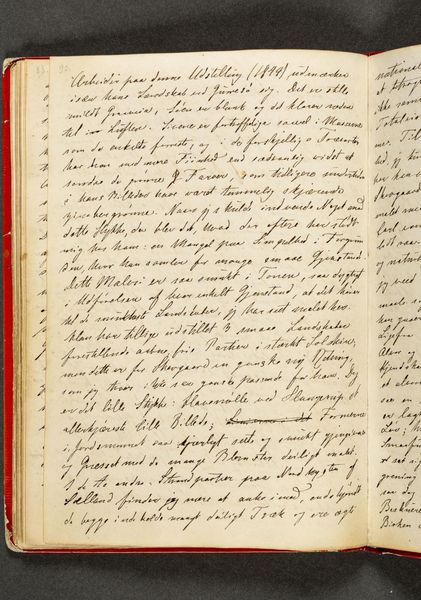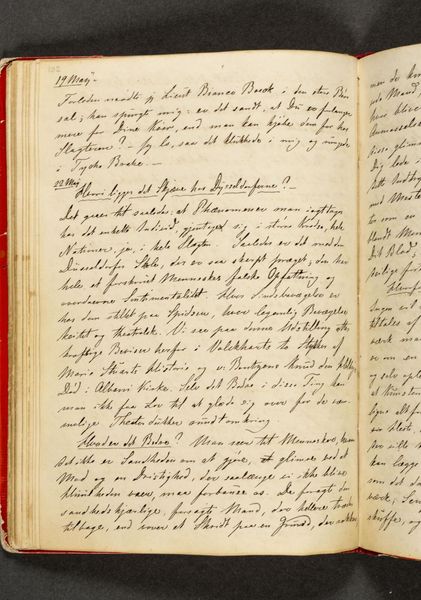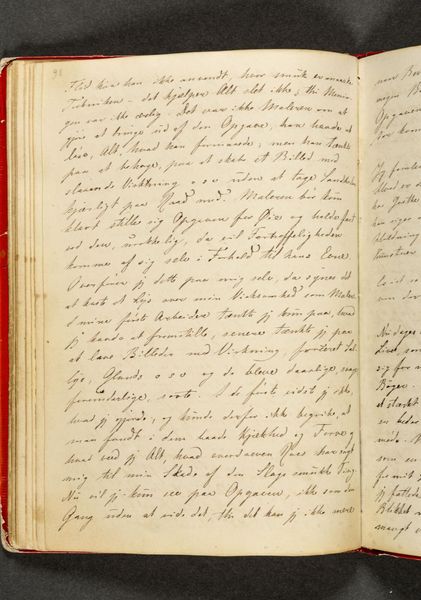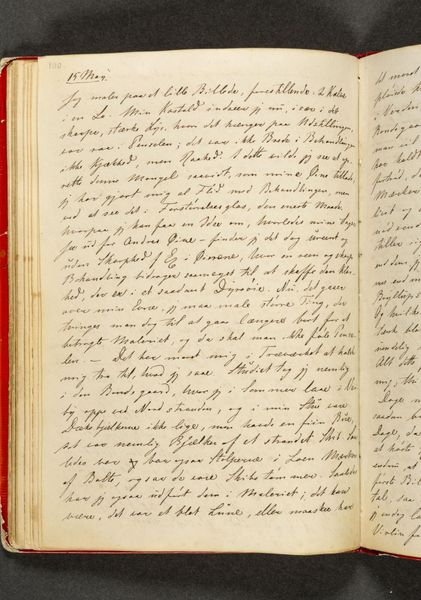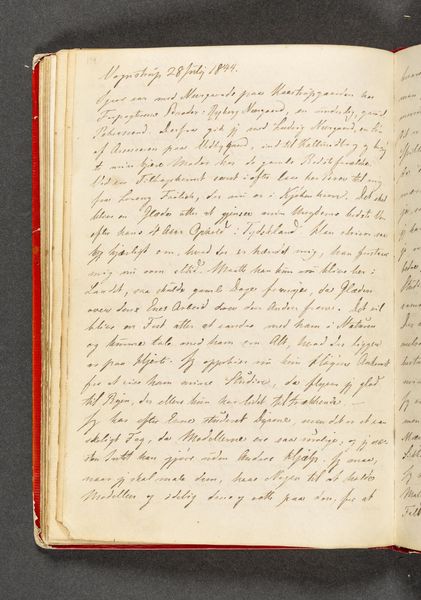
drawing, textile, paper, ink
#
portrait
#
drawing
#
sketch book
#
textile
#
paper
#
ink
#
journal
#
romanticism
Dimensions: 192 mm (height) x 133 mm (width) (bladmaal)
Editor: This is Johan Thomas Lundbye’s “Diary. Page 46” from 1843, ink on paper. It seems so personal and introspective, a glimpse into the artist's private thoughts. What do you see in this piece beyond just diary entries? Curator: This work invites us to consider the journal as a symbolic space. Words themselves become icons. Look at the density of the script, how the lines form patterns. Doesn't it remind you of textiles, like woven stories or perhaps tapestries hung in a domestic sphere? Editor: That’s interesting! I hadn’t thought of it like that. I was more focused on the literal meaning of the words and their intimate nature. Curator: Consider the cultural memory embedded in handwriting. The act of committing thoughts to paper, especially in such a deliberate script, reflects a different kind of engagement than, say, a typed document today. How does this hand-written quality alter our sense of "truth"? Editor: So you're suggesting that the very act of writing by hand imbues the words with a greater sense of authenticity? Like a physical manifestation of the artist’s inner world? Curator: Precisely. The imperfections, the flourishes, all become part of the message. And remember, during the Romantic era, the personal and the emotional were highly valued, becoming symbols of individual experience. It's the cultural weight of intimacy as performance. Do you see continuity between these entries and a more contemporary forum like online blogging or live journaling? Editor: Now that you mention it, it feels like an early ancestor to those forms, like a bridge to another era. Curator: Exactly. These diaries can reflect deep personal narrative while they also carry broader, shared sentiments. It also gives voice and shape to experiences, not merely for recounting but as an action in self-authorship. Editor: This conversation made me consider this work in such a different light. I appreciate how you helped to reveal the work’s symbolism and relationship to history and contemporary expressions.
Comments
No comments
Be the first to comment and join the conversation on the ultimate creative platform.
